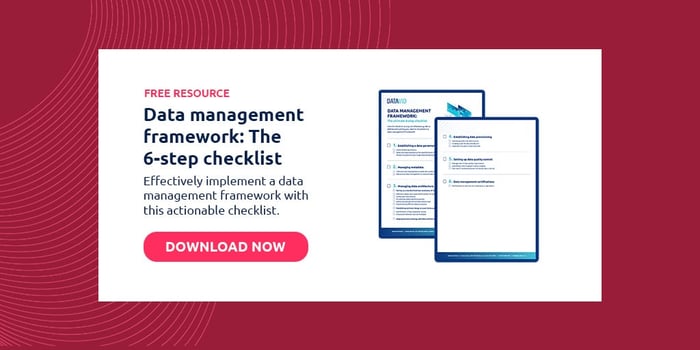5 minute read
The 8 best NoSQL databases for your business [2023]
NoSQL databases are now common across most companies- but which one is best nosql databases for YOUR business? Here are 8 you can learn about and consider.
Table of contents
We’ve handpicked the 8 best NoSQL databases for your business:
- MarkLogic
- ScyllaDB
- MongoDB
- Apache Cassandra
- Couchbase
- Amazon DynamoDB
- Redis
- Neo4j
Find out why we love them in detail below.
The best NoSQL databases for your business requirements are not always easy to find, especially as more databases come onto the market.
There is a clear need for NoSQL databases as businesses look to handle requests from thousands of users at a time, and store increasingly complex data.
Your business might need to prioritize the speed of response from your database so that users can get their data quickly.
Or you might want to prioritize the ability to integrate your database with other products such as cloud services or proprietary software.
The NoSQL database solutions that were chosen in this article each fit with different business requirements or use cases, helping you to find the best database for your business.
Best NoSQL database #1: MarkLogic
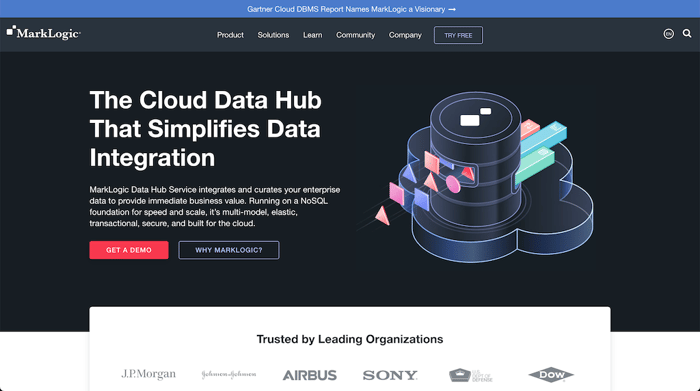
MarkLogic is a multi-model NoSQL database designed to handle complex data integration use cases such as large data sets with multiple different models or in a fast-changing business environment.
The database has been designed to have a single platform for data needs.
There is a single real-time view of data with full-text search capabilities, alongside data exploration tools.
MarkLogic is a good choice for you if you want a single platform for your needs, so you don’t have to manage multiple licenses, installations, and updates.
MarkLogic’s ACID data principles compliance also means that you can guarantee consistency with your database queries, giving you predictable performance, useful when you need to know exactly how your database will react in certain situations.
Best NoSQL database #2: ScyllaDB
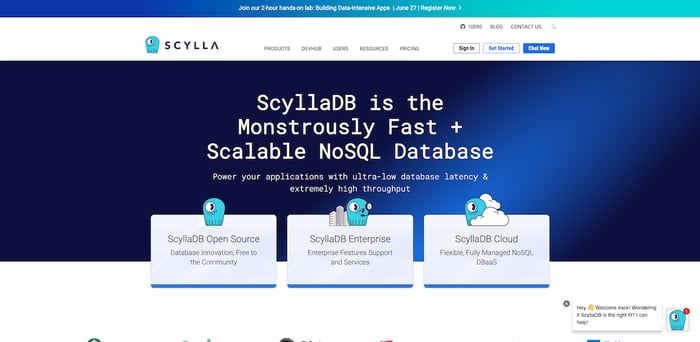
ScyllaDB playfully calls itself a "monstrously" fast NoSQL database. The technology has high satisfaction rates among various review sites and forums for its speed.
As a NoSQL database, ScyllaDB features some great benefits:
- The core technology is fully open-source
- It is fully-compatible with Apache Cassandra and DynamoDB
- Its focus is primarily on speed and cost-efficiency
But good technology is only half the story.
Thankfully, ScyllaDB provides great documentation as well!
The team over at ScyllaDB also offers a ton of educational content on NoSQL relevant to both beginner and expert developers.
We particularly like the experience of their resources section.
Best NoSQL database #3: MongoDB

MongoDB is a general-purpose document-oriented database.
Since it is document-oriented, it is optimised for storing all of the information about different items in a single place, making it easy to access all of your data on a single topic.
MongoDB has a horizontal, scale-out architecture which means it can handle huge volumes of traffic and data.
This makes MongoDB a good option if your business is expected to store terabytes of data, or the database is going to be accessed by millions of users.
Like MarkLogic, it’s easy to scale up a MongoDB database and deal with larger amounts of data as your business grows.
This makes MongoDB popular among start-ups, as they do not need to change their database once their business has expanded significantly.
Best NoSQL database #4: Apache Cassandra
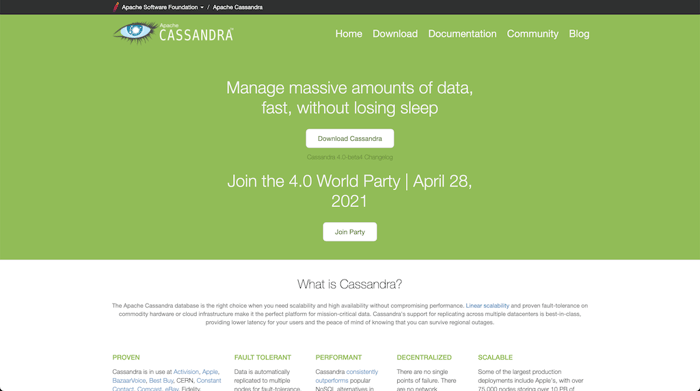
Apache Cassandra is a free, open-source NoSQL database.
Unlike some NoSQL databases, there are no costs to using Cassandra for your business, except for server hosting and similar expenses.
Cassandra has been designed to be distributed across multiple servers, meaning that your business’s operations will not collapse if there is an issue with a single server.
Data is also automatically replicated to these different servers, reducing work for database administrators.
Cassandra offers similar speeds for large and small volumes of data with no negative effects on the accuracy of the data.
Combining this with the fact that it has no single point of failure, it is popular with large enterprises that need a high level of consistency across their global business.
Best NoSQL database #5: Couchbase
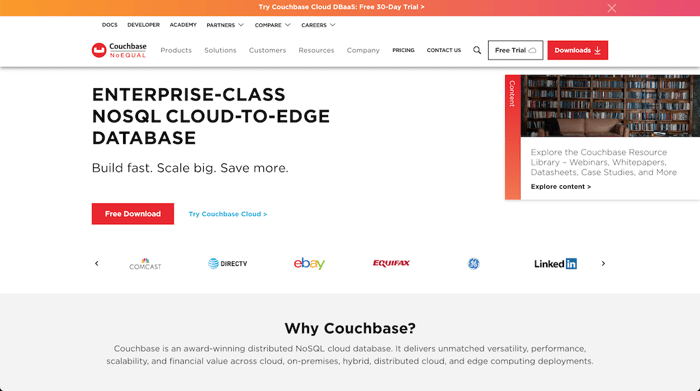
Couchbase, previously known as Membase, is a document-oriented NoSQL database that has been optimised for interactive applications.
Couchbase is considered to be highly flexible when compared to other NoSQL databases.
This means that you can easily change different aspects of your database, which is useful if your product is still in the early stages of development but is also going to be released soon to some users.
Couchbase also gives your IT department the ability to specify IP address ranges, routing tables, network gateways, and subnets.
If your database is only going to be used privately by a small number of users, it is easy to protect your data from other interfering actors.
Best NoSQL database #6: Amazon DynamoDB
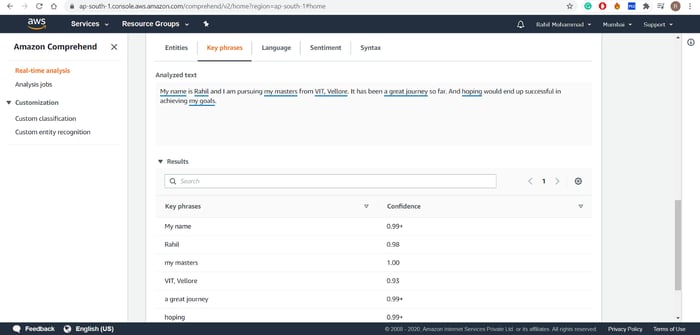
DynamoDB is a NoSQL database provided by Amazon as part of their Amazon Web Services suite. By residing in the AWS suite of products, it sits completely in the cloud, meaning that your business does not need any hardware to use DynamoDB.
If your business is planning to launch a cloud-based product then you might be using other AWS products such as LightSail or Amplify.
DynamoDB can easily be integrated into these products.
DynamoDB also encrypts all data by default, and backups of data can be easily accessed through the AWS platform. If security or data loss prevention is particularly important to your business then DynamoDB could be a great choice.
Best NoSQL database #7: Redis
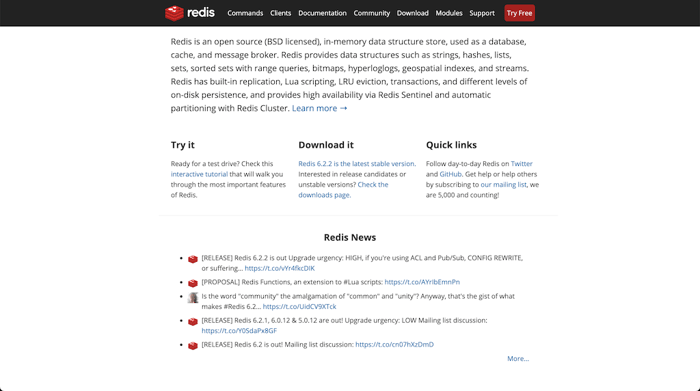
Redis is a NoSQL database optimised for storing whole datasets in memory.
While this may not be possible for large quantities of data, it can give huge speed boosts for lower amounts of data.
Data does not need to be fetched from slower devices or be recomputed as it is simply retrieved from the user device’s cache.
Since Redis was developed in the C programming language, it has even more potential to operate quickly.
Redis is a great choice if your business or product is dependent on storing and retrieving data in extremely short timeframes.
Best NoSQL database #8: Neo4j
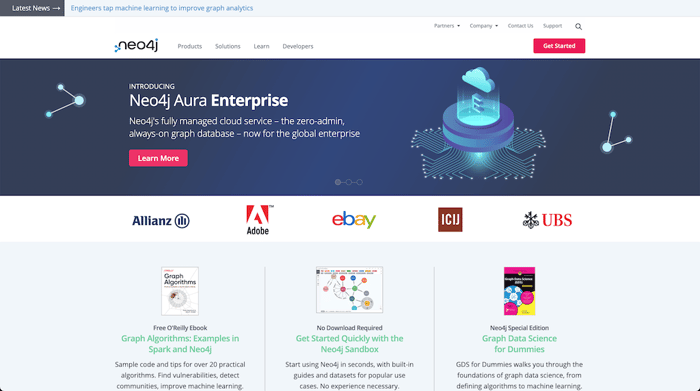
Unlike many of the previously-mentioned databases, Neo4j is a graph-based database. This means that it is not only great at handling data but also relationships between different data points.
If your business makes use of a lot of social media or personal interest data, it would be very beneficial to have a graph-based database.
Another popular use case for Neo4j is in recommendation systems.
If your business needs to recommend new content to users such as articles to read or videos to watch, it is important that the database can find related content.
Since Neo4j is optimised for finding these relationships, it outperforms many other relational and NoSQL databases in this task.
Choosing a NoSQL database for your business

There are many good NoSQL databases depending on the needs of your business, and each one is already used by a wide variety of businesses.
MongoDB remains a popular choice among start-ups due to the ease at which it can be scaled up, as well as by having a larger active community.
However, other NoSQL databases are catching up in these aspects, so you also need to consider other needs.
- If you are developing products for the cloud, DynamoDB is a great choice for combining with other cloud services.
- If you want to understand relationships between different pieces of data, a graph-based database like Neo4j is also a great choice.
There are many different NoSQL databases, but this article will have cleared up the differences to help you have a clearer idea of the best NoSQL databases for your business requirements..
Frequently Asked Questions
Which NoSQL database is best?
The best NoSQL database depends on the particular needs of your business. MarkLogic is a multi-model, fully-ACID compliant database that provides all of the data integration products into a single database software, meaning that you are unlikely to need to buy further software for this purpose. On the other hand, Amazon DynamoDB provides good integration for cloud-based software, while MongoDB can scale more easily as your business grows.
Why is MongoDB known as the best NoSQL database?
MongoDB is a highly scalable database. This is a big benefit for NoSQL databases that need to store huge amounts of data of varying sizes and types. MongoDB also has a great user experience for experienced software developers who want to start coding with their database quickly. The already-high popularity of MongoDB users means that there is a large community to tap into if your developers have a problem using the database – seen as a large plus in software development circles.
What are the best NoSQL databases for a web application?
The best NoSQL database for web applications can still depend on the specific uses of this web app. However, as more and more web apps are being developed with Amazon Web Services, DynamoDB is becoming a more popular choice for web app NoSQL databases. DynamoDB is easy to integrate into other AWS products being used for the web app.
What's the difference between a NoSQL and a relational database?
Relational databases store data in tables, where each piece of data in the table must follow the same format. This means that if one row of data has a title, all rows must have a title. If one row has a set of numbers denoting hit count and view count, all rows must have this. In contrast, NoSQL databases are capable of storing data of different types. This is popular when storing larger documents that should not be constrained by size.

